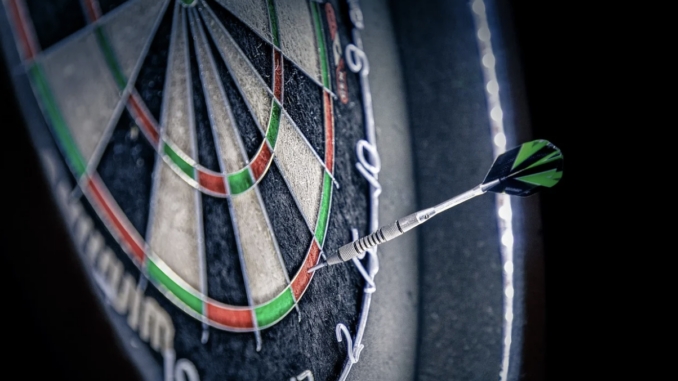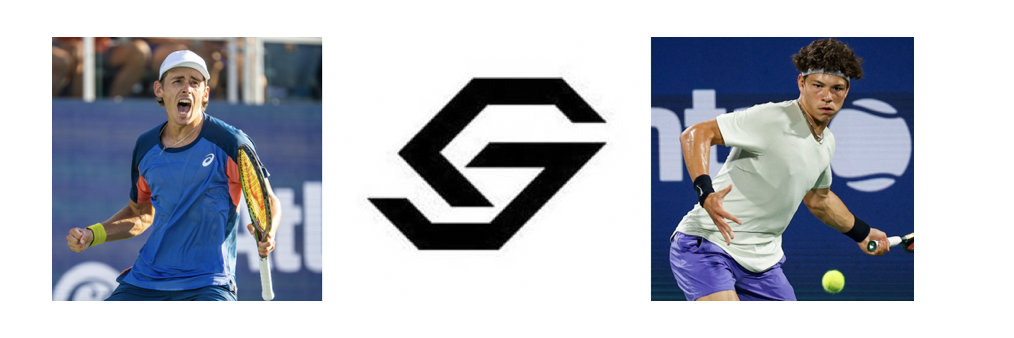
Success in sports and casinos often hinges on more than just luck. Knowing how to approach a challenge with the right tactics can make a huge difference, whether you’re competing in a match or placing a bet. The strategy involves analyzing the situation, understanding your strengths, anticipating your opponent’s moves, and making calculated decisions under pressure.
Here, we’ll explore how these strategy principles play out in two different but equally competitive arenas: tennis and blackjack.
The Mental Edge in Sports Strategy
Sports are often seen as physical contests but require significant mental preparation and strategy. Tennis, for instance, is as much about outsmarting an opponent as it is about hitting the perfect serve.
Every shot in a match is a calculated move designed to exploit weaknesses, control the pace, and keep the opponent guessing. Players study their rivals extensively, analysing their patterns, tendencies, and reactions to specific scenarios.
The emphasis on mental sharpness in sports can be compared to the strategic thinking required in competitive gaming, particularly in casino games. Players from various regions worldwide, such as those engaging in poker tournaments in Europe or blackjack tables in Las Vegas, apply similar focus and adaptability.
Closer to home, NZ online blackjack allows players to test their strategic abilities in a unique virtual environment. Like tennis, success depends on calculating risks, anticipating outcomes, and adjusting to real-time shifting scenarios.
What separates the best from the rest is their ability to adapt mid-match. Plans crafted before a game often require adjustment as new challenges arise. This ability to stay one step ahead reflects the mental resilience and strategic awareness needed to excel at the highest levels, whether on the court or at the table.
Tactical Depth in Casino Games
Casino games, much like sports, are not solely reliant on luck. Success often comes down to understanding the rules, recognising patterns, and making calculated decisions.
Blackjack exemplifies this perfectly, offering a game where players can actively influence outcomes through strategy. Unlike games of pure chance, blackjack requires decisions based on probability, psychology, and situational awareness.
One of the foundational strategies in blackjack is deciding when to hit, stand, or double down. Each move depends on assessing probabilities and weighing risks against rewards.
Beyond mastering these basics, players often incorporate advanced tactics like card counting to track the deck’s composition, which helps refine decision-making further. Even without such advanced methods, staying disciplined and avoiding impulsive decisions can make a noticeable difference in outcomes.
However, the strategic depth of blackjack isn’t just about playing the cards. Observing other players and gauging their actions adds another layer of intrigue. Those who combine their knowledge of the game with an understanding of human behaviour often enjoy a competitive edge, showcasing how skill and strategy are pivotal in shaping results.
Common Threads: Psychology and Adaptability
While sports and casinos seem worlds apart, both share a common reliance on psychology and adaptability. Understanding an opponent’s mindset can be as valuable as reading their physical cues in tennis.
A player who senses frustration or fatigue can exploit those emotions, applying pressure at just the right moments to force errors. This psychological element mirrors tactics used in blackjack, where observing another player’s decisions can offer insight into their confidence or lack thereof.
Adaptability is another critical factor tying these domains together. Strategies in tennis and blackjack are dynamic, requiring players to constantly adjust to changing conditions.
A tennis player might need to shift from defensive play to aggressive strokes if their opponent gains momentum. Similarly, a blackjack player might alter their betting patterns or adjust their risk tolerance based on shifts in the game. This constant need for evaluation and recalibration underscores the intellectual challenge present in both activities.
Skill vs. Instinct: Balancing Art and Science
There’s a delicate balance between skill and instinct in both sports and casinos. Tennis players often rely on instinctual movements honed over years of practice, yet every shot is underpinned by deliberate decision-making.
For example, when returning a serve, a player must rely on instinct to react quickly, but their choice of where to place the ball often reflects a broader strategic framework.
In blackjack, instinct also plays a role, particularly for seasoned players with internalised probabilities and patterns. However, relying purely on gut feelings without a strategic foundation often leads to inconsistent results. Success comes from merging instinctive actions with calculated strategies on the court or at the table. This blend of art and science defines the most successful competitors and players.
The Role of Risk and Reward
Both tennis and blackjack demonstrate how managing risk and reward is central to strategic thinking. In tennis, players often decide whether to choose a high-risk winner or play it safe with a consistent rally shot. These choices can turn the tide of a match, especially during pivotal points.
In blackjack, every move involves balancing risk and reward. Choosing whether to take another card when high stakes can significantly affect the game’s trajectory.
The ability to remain calm under pressure and carefully weigh decisions separates experienced players from novices. The calculated risk management in both arenas highlights the intellectual demands of strategy-driven success.
Wrapping Up
Strategy in sports and casinos shows that skill, preparation, and quick thinking matter as much as physical talent or luck. The strategies behind these activities highlight how challenging and engaging they can be. Whether playing on the court or at the table, using the right tactics turns the game into a true test of both mind and skill.


Leave a Reply